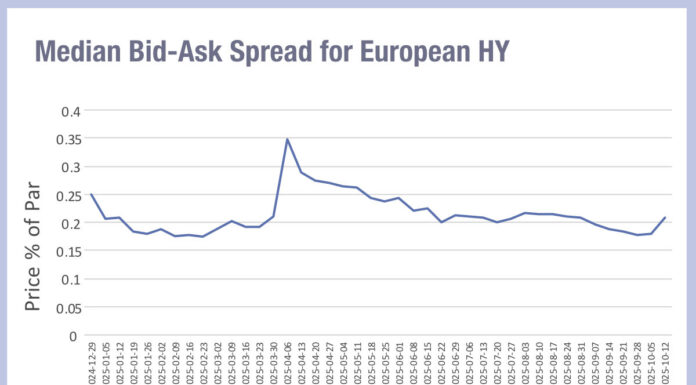By Loris Buscaino and Matteo Pezzutti – Market Hub, IMI Corporate & Investment Banking Division, Intesa Sanpaolo
Outsourced trading is not a new concept, but it is gaining momentum. In a wider extension, this concept was born out of providing services and financial solutions (including securities finance, liquidity management, foreign exchange and other capital markets activities) to smaller hedge funds and asset managers, choosing outsourced trading over building internally their own capabilities. In the past, outsourced trading was considered a taboo and a threat to in-house trading desks, but in the recent years it has been a common practice.
 The pandemic marked an important transformation in capital markets and in the way of working, with the acceleration of hybrid working-from-home setups, video conferencing and instant messaging becoming popular. This change also affected trading, representing one of the driving forces behind the growing acceptance of outsourcing the entire or parts of the trading desk. While the largest players have the sophistication and resources to face the transforming landscape and may maintain the traditional in-house model, the smaller players became increasingly comfortable with outsourced trading practice.
The pandemic marked an important transformation in capital markets and in the way of working, with the acceleration of hybrid working-from-home setups, video conferencing and instant messaging becoming popular. This change also affected trading, representing one of the driving forces behind the growing acceptance of outsourcing the entire or parts of the trading desk. While the largest players have the sophistication and resources to face the transforming landscape and may maintain the traditional in-house model, the smaller players became increasingly comfortable with outsourced trading practice.
There are surveys showing the growing appetite for outsourced trading. The strategic decision to outsourced or not outsourced trading is originated by multiple factors, starting from the evaluation of which are considered in the lifecycle core activities or not.
The main drivers behind this decision are increased efficiencies, enhancing investment performance and optimising costs.
 More and more financial intermediaries offer an outsourced trading specialised desk, designed to help buy-side traders manage increasing trading complexity, regulatory obligation changes, reducing trading costs, improving operational efficiency, accessing new asset classes, extending operative networks, facilitating technological innovation or expanding capabilities. Partnering with a third party in a long-term strategic collaboration may represent an opportunity that requires a strategic analysis of pros and cons, because it does not fulfil every player’s need and it may impact the full trading capabilities or only a part of it.
More and more financial intermediaries offer an outsourced trading specialised desk, designed to help buy-side traders manage increasing trading complexity, regulatory obligation changes, reducing trading costs, improving operational efficiency, accessing new asset classes, extending operative networks, facilitating technological innovation or expanding capabilities. Partnering with a third party in a long-term strategic collaboration may represent an opportunity that requires a strategic analysis of pros and cons, because it does not fulfil every player’s need and it may impact the full trading capabilities or only a part of it.
Outsourcing trading: pros & cons
Increasingly complex markets, regulation, rising costs, declining profits, fee pressures, market structure changes, technological investments and the competition for know-how are the main drivers of the strategic decision of outsourcing part or the full trading capabilities.
For financial players who consider trading a not-core activity, but a cost centre and want to be more focused on customer business and relationship, by outsourced trading, they can optimise their organisational models and avoid wasting economic and human resources on non-profitable activities. In addition, outsourced trading improves their trading outcomes, by focusing on high-touch trading and outsourcing the low touch business, operational resilience and efficiency and finally mitigates and manages their risks and scales their business. Furthermore, running a trading desk can be expensive due to the advanced technology systems required to work in global markets, sophisticated trading platforms and data analysis tools.
Outsourcing enhances a bank’s ability to execute efficient and profitable trades by providing access to cutting-edge technologies and a broader network of brokers. Multi-Asset Execution Specialists, which benefit from a skilled workforce and robust data protection standards, have taken a leading role in the financial landscape, focusing on “best execution” with the implementation of a Smart Order Router (SOR) that supports the strategy of order transmission and execution. This approach enables regulatory compliance and optimises trading performance for clients’ orders while maintaining high service standards. By delegating best execution to specialised providers, banks can focus more on client management, handle market orders efficiently, and reduce the cost of market data as well as market membership by transforming it in a variable fee paid to the brokers. This trend is particularly relevant for bonds’ retail customers, ETFs, and stocks through online platforms. Independent outsourced trading desks with no existing ties to brokers play an important role by helping firms comply with best execution policies and audit trails.
Flexibility is another important driver for outsourced trading: this practice allows companies to adapt to market changes and technological transformation, and seize new business opportunities more quickly, and to redirect resources to core business, improving, first and foremost, the quality of customers service and reducing operating expenses.
For financial players who consider the trading desk like the motor of the full lifecycle, outsourced trading is considered a risk of losing control over outsourced services and operations, which may also impact on market ranking and customer relationships. With less direct control over market operations, companies might experience a decline in visibility and influence on markets and customers. To mitigate these risks, it is crucial to carefully select asset classes and markets for outsourcing and to decide over partial or total outsourcing. Firms must carefully select outsourcing providers and establish clear agreements to ensure their interests and regulatory obligations are upheld.
A consequential risk is the cybersecurity threat, as entrusting sensitive data to external providers increases the risk of security breaches. Companies that outsource trading activity must implement robust conflict-of-interest policies and adhere to regulatory guidelines to maintain integrity and protect client data. Additionally, having a business continuity plan and a backup service provider in place is crucial. These measures ensure minimising downtime and maintaining service quality for clients. Moreover, the trading desk may be viewed as part of the investment process with interaction and culture aligned. That is difficult to replicate using outsourced trading. The target of longevity and relationships on the desk is something harder to achieve while outsourcing trading to an external source. Another aspect to be considered when deciding over outsourced trading is the possible depersonalisation and increased standardisation of trading activity. This standardisation might not always meet the specific needs of every client or market segment, potentially affecting service quality.
Conclusion
With outsourced trading practice growing consensus, also the Regulators are mapping this new phenomenon. In Europe, the European Banking Authority (EBA) published the “Guidelines on Outsourcing Arrangements” in 2019, with the latest update in 2023. These guidelines specify the internal governance and risk management frameworks that financial institutions must implement when outsourcing some activities. The document outlines the phases of outsourcing: preliminary investigation, evaluation, approval, management, and control. The company management always remains responsible, even if the function is outsourced, and must approve, review, and update the outsourcing policy. The guideline includes requirements for risk management, due diligence on service providers, operational continuity, exit strategies, and documentation of agreements. Competent authorities must monitor the adequacy of outsourcing arrangements and ensure they do not alter the entities’ initial authorisation conditions. The company’s compliance must keep a register of outsourcing, essential for monitoring all activities.
Outsourced trading services are well-positioned, with demand expected to keep growing, an expanding range of asset classes and larger managers increasingly getting involved. From an organisational perspective, this might seem like a straightforward economic choice, but the trading desks may wonder whether they are being replaced by outsourced services or simply supported by them.
The authors would like to thank Benedetta Prisco for her assistance in writing this article.
©Markets Media Europe 2025












